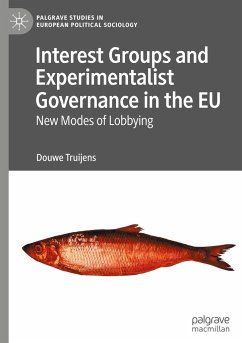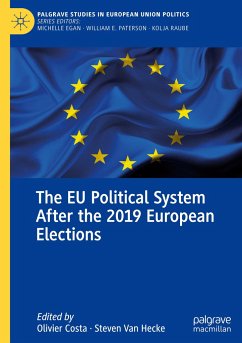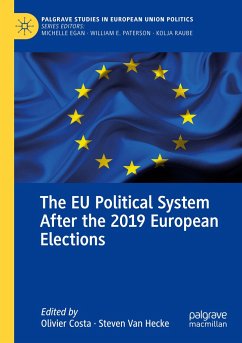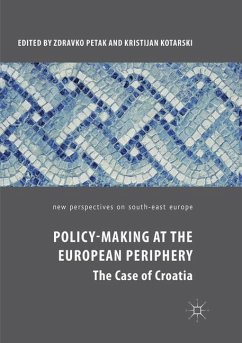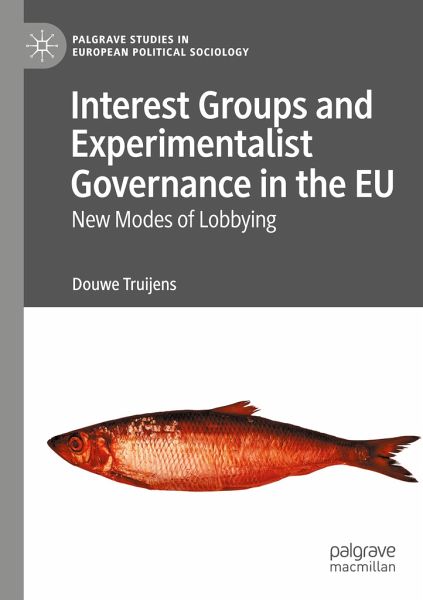
Interest Groups and Experimentalist Governance in the EU
New Modes of Lobbying
Versandkostenfrei!
Versandfertig in 6-10 Tagen
139,09 €
inkl. MwSt.
Weitere Ausgaben:

PAYBACK Punkte
0 °P sammeln!
This book researches the role that interest groups play in new modes of EU governance, with a specific focus on the role of interest representation in experimentalist governance frameworks. The research asks how lobbying in the legislative process contributes to the governance framework and its institutional arrangements and subsequently asks how the relevant interest groups participate in policy implementation - in which broad policy goals are concretised. The research is based on four in-depth case studies: the Industrial Emissions Directive, the General Data Protection Regulation, the Comba...
This book researches the role that interest groups play in new modes of EU governance, with a specific focus on the role of interest representation in experimentalist governance frameworks. The research asks how lobbying in the legislative process contributes to the governance framework and its institutional arrangements and subsequently asks how the relevant interest groups participate in policy implementation - in which broad policy goals are concretised. The research is based on four in-depth case studies: the Industrial Emissions Directive, the General Data Protection Regulation, the Combating Child Abuse Directive, and the Institutions for Occupational Retirement Provision Directive. Of special interest in these cases are the balance between types of interest groups (most notably business and NGOs) in policy formulation and implementation, and the changing dynamics between interest groups and public policy-makers in such 'horizontal' governance. The book's findings are required reading for all those concerned with effective and democratic policy-making in the EU.



